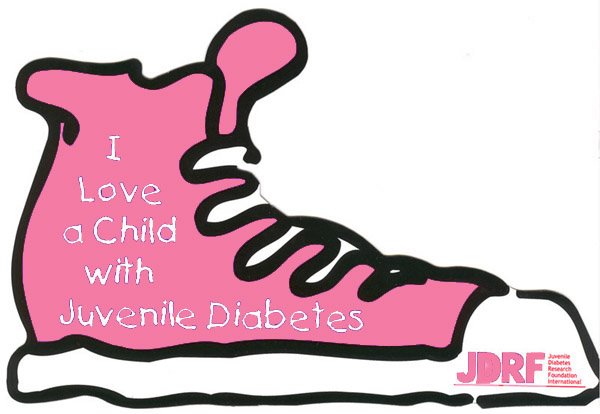For anyone new to the world of diabetes, you may have heard of the term A1C and wondered why it was important to get since we test blood sugars multiple times everyday. Isn't that good enough to know if my child's blood sugars are staying in a healthy range? Not necessarily.
Let's say that you check your child's blood sugars consistently each day at the same time, during those times they are always within or near your target range so you figure everything is going great. If your child is on an insulin pump you know that basal rates vary dependent upon the time of day. So what about those in between times when your not checking their sugars? What's really happening during that time? An A1C can help to answer that question.
What the A1C does is average your child's blood sugar over time. Our bodies replace our blood cells about every 3 months. During that time sugars get stuck to the blood cells. High blood sugars result in more sugar sticking to the cells, low blood sugars means less sugar sticks to the cells. The A1C gives you an average of what a person's blood sugar levels were over the course of about 3 months. This can be very useful information for a parent of a type 1 child. Although we try to avoid low blood sugars, which can have immediate consequences, we also want to avoid high blood sugars over time which can lead to long term damages to our children's health.
A target A1C for most kids is between 7-8. This translates into an average blood sugar between 170 to 205, dependent on the chart your reading and the lab results. Keeping your child's blood sugar within the target range will help to reduce the risk of long term damage. It's also a good idea to speak with your doctor or diabetes educator on what the results mean individually. If your child wears a pump, the doctor or educator can usually download your pumps history to give an overall picture of the results. Was the A1C good because your child had lots of really low readings to counteract the high ones, or did they actually have a really well averaged quarter. It also allows for your doctor to make possible corrections to your child's basal rates if necessary.
Overall the A1C is a very important part of managing your child's diabetes. Although it might not always be the first thing on your mind to do, make sure your write it on the calendar so you will remember.
That being said I am happy to report that after several not so great numbers, 8's and 9's, Syd's latest numbers came in at 7.3%. We couldn't ask for a better number. I think her mom in heaven has been working hard to keep her little girl healthy.
May all of you have similarly happy results.
2 years ago








2 comments:
I am so glad that her numbers are doing better! Keep up the good work Loren.
You're doing a great job!
Post a Comment